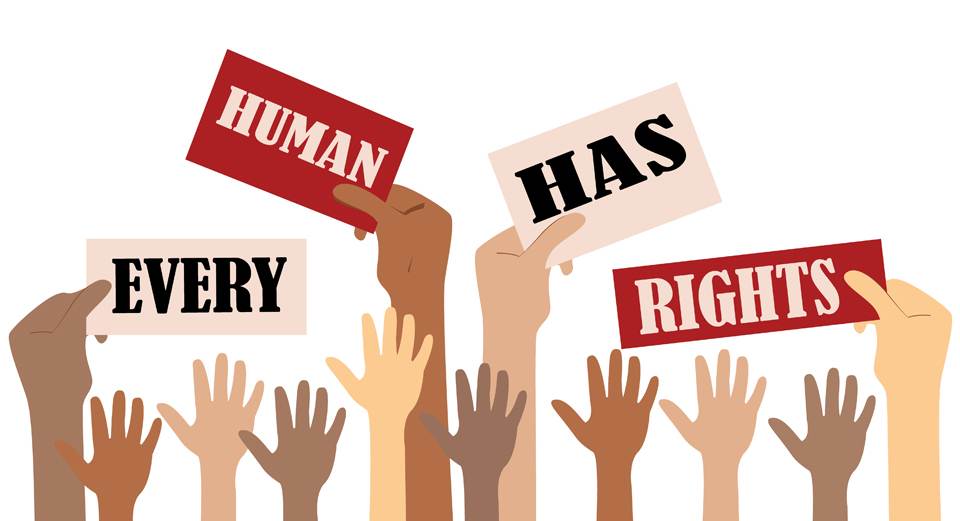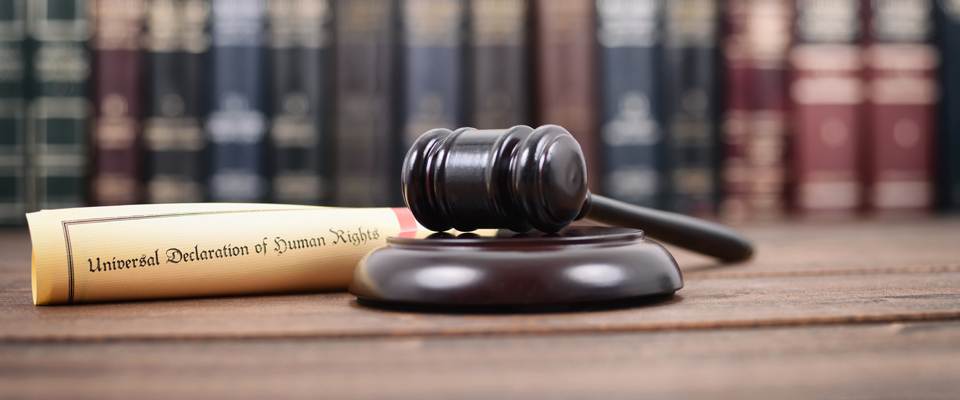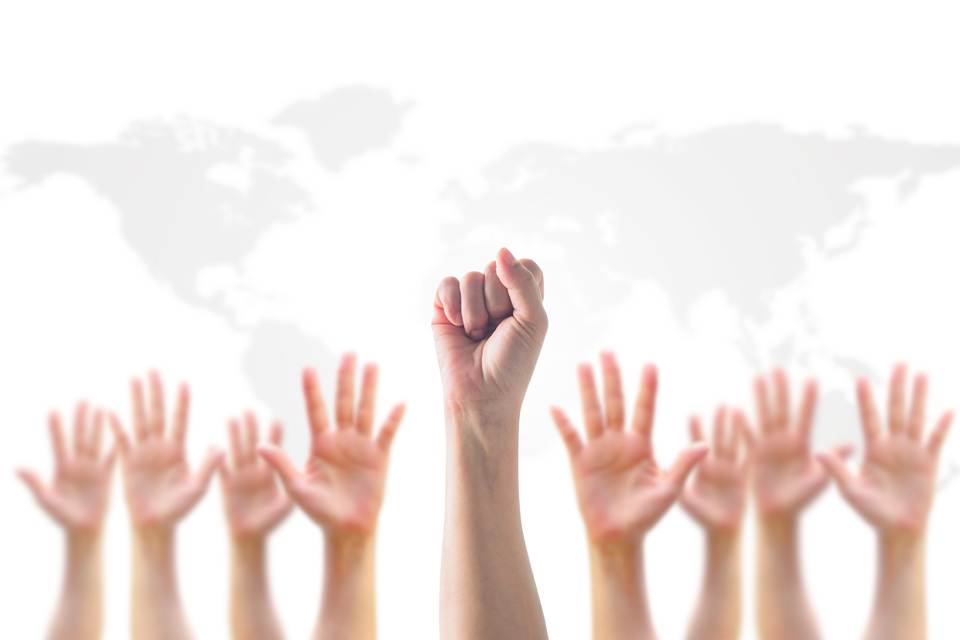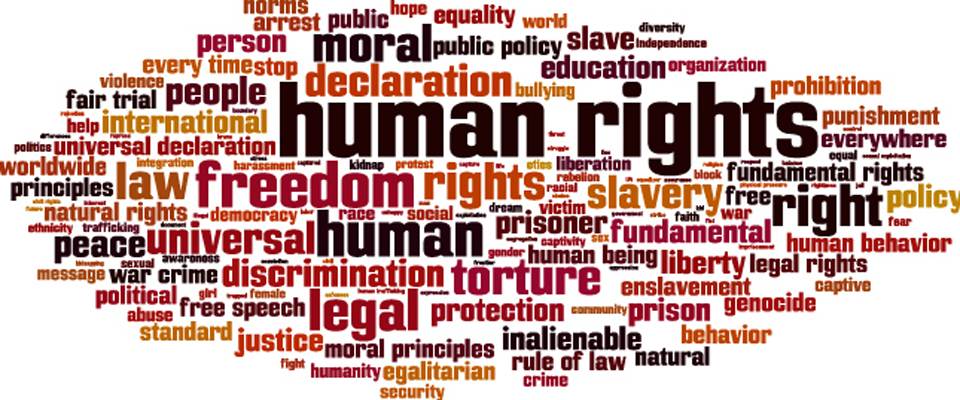What Is The Purpose Of The Human Rights Law?

The human rights law protects individuals' fundamental rights and freedoms. These rights and freedoms include the right to life, liberty, and security of a person, as well as the freedom from racial discrimination, torture, and inhuman or degrading treatment. The human rights law also protects other basic rights and freedoms, such as the right to freedom of expression, education, and work. All of these rights and freedoms are essential to the dignity and well-being of every person.
The human rights law is important for holding governments and other powerful actors accountable for their actions. Governments or other powerful actors must be held accountable when they violate people's fundamental rights and freedoms. The human rights law provides a mechanism for doing this. It allows individuals who have been victims of human rights violations to bring claims against those responsible in court.
Human rights law is also an important tool for advancing social justice. It can be used to challenge discrimination and other forms of inequality. It can also be used to promote the protection of vulnerable groups, such as women, children, and minorities.
Human rights law is a critical part of the international legal system. It is enshrined in international treaties and human rights conventions, such as the Universal Declaration of Human Rights. These treaties and conventions are binding on all governments that have ratified them.
Human rights law is an evolving area of law. It is constantly being developed and interpreted by courts around the world. This process helps to ensure that the law remains relevant and effective in protecting people's fundamental rights and freedoms.
What Are The Laws Of Human Rights?

The laws of human rights are the cornerstone of modern society. They protect our fundamental rights and freedoms and help ensure everyone is treated equally.
There are many different human rights laws worldwide, but they all have the same goal – to protect human dignity and ensure that everyone can live free from fear, persecution, and discrimination.
Human rights laws vary from country to country, but they all contain several common principles. These include the right to life, civil liberties, and security of person; freedom from torture, inhuman or degrading treatment; the right to a fair trial; and equality before the law.
Everyone is entitled to these basic rights and fundamental freedoms regardless of race, ethnicity, gender, religion, or any other status. And these rights must be protected by law.
Human rights laws are essential to ensuring that everyone can enjoy a life of dignity and opportunity. They help us build fairer, more just societies where everyone can feel safe and valued.
Who Do Human Rights Laws Apply To?
Human rights laws are designed to protect all people's basic rights and freedoms. But who do they actually apply to?The answer is: Everyone.
Yes, that’s right - human rights laws apply to everyone on the planet, regardless of nationality, ethnicity, religion, or any other factor.
Of course, there are some exceptions. For example, people who have been convicted of serious crimes may have their human rights temporarily suspended. But even then, they still have certain inalienable rights that cannot be taken away from them, such as the right to life and the prohibition of torture.
So if you are ever feeling like your rights are being violated, remember that you’re not alone - human rights laws are there to protect you.
How Does The Human Rights Act Protect Individuals?
The Human Rights Act 1998 protects individuals from having their human rights breached by public bodies. These public bodies include the government, local councils, and courts. The Human Rights Act also gives individuals the right to take their case to the European Court of Human Rights if they believe that their human rights have been breached.Under the Human Rights Act, everyone has the following human rights:
- The right to life
- The right to a fair trial
- The right to respect for private and family life
- The right to freedom of thought, religion, and belief
- The right to freedom of expression
- The right not to be tortured or treated in an inhuman or degrading way
- The right not to be held in slavery or servitude
- The right to marry and start a family
Human rights are not absolute – they can be limited if necessary to protect other rights or the public interest. For example, the right to freedom of expression may be limited to prevent hate speech.
The Human Rights Act has been controversial since it came into force. Some people argue that it gives too much power to judges and allows them to make political decisions. Others argue that it has positively impacted ensuring that public bodies respect the human rights of individuals.
What Are The 3 Duties Of The Human Rights Act?
- To protect your human rights
- To promote human rights
- To uphold human rights
What Is The Most Important Human Right?
The most important human right is the right to life. This includes the right to food, water, shelter, and medical care. It also includes the right to be free from violence, slavery, and torture. All human beings have these rights, regardless of nationality, ethnicity, or religion.The right to life is the most important human right because all other rights are meaningless without it. If a person does not have the right to life, they cannot enjoy any of the other human rights. Every person has the right to live their lives in peace and security. This right is essential for developing and enjoying all other human rights.
The Universal Declaration of Human Rights, adopted by the United Nations in 1948, sets out these rights in more detail. The International Covenant on Civil and Political Rights, adopted in 1966, also provides additional protections for the right to life. These treaties are binding on all governments that have ratified them.
There are few things more important than the right to life. It is the foundation of all other human rights and must be protected at all costs.
How Important Are Human Rights To Citizens Of A Country?

Human rights are important to citizens of a country because they protect people from mistreatment and ensure that everyone is treated fairly. Everyone deserves to live without fear of torture, rape, or murder, and human rights help make that possible. In addition, human rights promote democracy, economic development, and social progress. They also protect the environment and advance the cause of peace. When people enjoy human rights, they are more likely to live in stability and prosperity.
There are many different kinds of human rights, including the right to life, liberty, and security of person; freedom from torture, slavery, and forced labor; the right to a fair trial; the right to privacy; the right to freedom of expression; the right to freedom of religion; and the right to marry and have a family. These rights are enshrined in international treaties and conventions, such as the Universal Declaration of Human Rights and the International Covenant on Civil and Political Rights.
Why Should Human Rights Be Protected?
Human rights are a set of protections and entitlements to which every person is entitled simply by virtue of being human. These rights are enshrined in various international treaties and declarations, such as the Universal Declaration of Human Rights.There are many reasons why human rights should be protected. Firstly, every person deserves to be treated with dignity and respect. Secondly, human rights help to protect people from arbitrary abuse of power by governments and other institutions. Thirdly, promoting and protecting human rights can help prevent conflicts and build a more peaceful world.
However, human rights are not absolute and can be limited in certain circumstances. For example, the right to freedom of expression may be limited to protect public safety. Ultimately, protecting human rights is essential to creating a just and equitable society.
How Many Human Rights Are There?

This is a difficult question to answer because there is no one universally accepted list of human rights. However, some key documents that list and recognize human rights include the Universal Declaration of Human Rights (UDHR), which was adopted by the United Nations in 1948, and the International Covenant on Civil and Political Rights (ICCPR), which was adopted in 1966.
The UDHR is a non-binding document, but it has been influential in developing international human rights law. It sets out 30 articles outlining various human rights, including the right to life, liberty, and freedom from torture and other forms of cruel, inhuman, or degrading treatment or punishment.
The ICCPR is a binding treaty that requires states to protect and respect their citizens' civil and political rights. It has 66 articles, and like the UDHR, it includes the right to life, liberty, and freedom from torture and other forms of cruel, inhuman, or degrading treatment or punishment.
So how many human rights are there? That depends on which document you are looking at, which is still a matter of debate. However, it's clear that several key rights are recognized by the international community.
Are Human Rights Legal Rights?
Most people think of human rights as legal rights, but this isn't always the case. Legal rights are created by governments and enforced by courts, whereas human rights are inherent to all human beings and cannot be taken away. This means that even if a government doesn't recognize or protect a certain human right, the right still exists. For example, the right to freedom from torture is a human right, even in countries where torture is not illegal.There are many different types of human rights, including the right to life, liberty, and security of person; the right to freedom of thought, conscience, and religion; the right to work and earn a fair living; the right to an education; and the right to participate in government and public life. Everyone is entitled to these rights without discrimination.
Human rights are often enshrined in national laws and international treaties, which help to protect them. For example, the Universal Declaration of Human Rights, which was adopted by the United Nations General Assembly in 1948, sets out several fundamental human rights, such as the right to equality, the right to freedom from torture, and the right to a fair trial.
While human rights are sometimes seen as opposed to the interests of businesses, this is not always the case. Businesses can actually play a positive role in promoting and protecting human rights. For example, many businesses have adopted codes of conduct that set out standards for their treatment of employees, and some have even established human rights departments to monitor compliance with these standards.
However, there are also many cases where businesses have been accused of violating human rights, such as the right to freedom of association or the right to a safe and healthy working environment. In such cases, it is often up to the national government to take action to protect the rights of workers and hold businesses accountable.
What Are The Different International Human Rights Treaties?
The International Covenant on Civil and Political Rights is a multilateral treaty adopted by the United Nations General Assembly on December 16, 1966, and in force since March 23, 1976. The ICCPR is part of the International Bill of Human Rights, along with the Universal Declaration of Human Rights (UDHR) and the International Covenant on Economic, Social, and Cultural Rights (ICESCR). The ICCPR is monitored by the United Nations Human Rights Committee.The Covenant establishes different human rights than those found in the UDHR, including the right to self-determination, the bans on torture and slavery, and fair trial rights. A detailed list of these rights can be found in the ICCPR text. The Covenant also requires states to take steps to ensure that these rights are enjoyed by all individuals within their territory and to report periodically to the UN on compliance with the Covenant.
The Second Optional Protocol to the ICCPR, adopted in 1989, aims to abolish the death penalty. As of May 2013, 106 states have ratified the Second Optional Protocol, and a further 27 states have signed but not yet ratified it.
What Do the Human Rights Courts Do?
The European Court of Human Rights (ECHR) is a supranational court based in Strasbourg, France. The court has jurisdiction over the Council of Europe member states, which includes 47 countries. The ECHR hears applications alleging that a member state has violated one or more of the human rights enshrined in the European Convention on Human RightsThe court was established in 1959 and began hearing cases in 1960. As of 2018, it has rendered over 15,000 judgments. The vast majority of the court’s work is devoted to dealing with applications alleging that a member state has violated the human rights of one of its citizens. But the court also hears cases brought by member states against each other and by individuals or groups of individuals against member states.
The ECHR is composed of a president and two sections, each consisting of seven judges. The Grand Chamber is the court’s highest chamber and hears cases of particular importance or general interest. The other chamber is the Chamber of Seven, which hears cases on an ad hoc basis.
The ECHR’s judgments are binding on the member state concerned. If a judge finds that a member state has violated the human rights of one of its citizens, the state must take steps to remedy the situation. This may involve changing a law or practice or compensating the victim.
The ECHR is important to the European Union’s human rights protection system. It complements the work of the EU’s Court of Justice, which deals with cases concerning the interpretation and application of EU international law. Together, these two courts help to ensure that the basic human rights of everyone in Europe are respected.
About Harrison Barnes
No legal recruiter in the United States has placed more attorneys at top law firms across every practice area than Harrison Barnes. His unmatched expertise, industry connections, and proven placement strategies have made him the most influential legal career advisor for attorneys seeking success in Big Law, elite boutiques, mid-sized firms, small firms, firms in the largest and smallest markets, and in over 350 separate practice areas.
A Reach Unlike Any Other Legal Recruiter
Most legal recruiters focus only on placing attorneys in large markets or specific practice areas, but Harrison places attorneys at all levels, in all practice areas, and in all locations-from the most prestigious firms in New York, Los Angeles, and Washington, D.C., to small and mid-sized firms in rural markets. Every week, he successfully places attorneys not only in high-demand practice areas like corporate and litigation but also in niche and less commonly recruited areas such as:
- Immigration Law
- Workers Compensation
- Insurance
- Family Law
- Trust and Estate
- Municipal law
- And many more...
This breadth of placements is unheard of in the legal recruiting industry and is a testament to his extraordinary ability to connect attorneys with the right firms, regardless of market size or practice area.
Proven Success at All Levels
With over 25 years of experience, Harrison has successfully placed attorneys at over 1,000 law firms, including:
- Top Am Law 100 firms such including Sullivan and Cromwell, and almost every AmLaw 100 and AmLaw 200 law firm.
- Elite boutique firms with specialized practices
- Mid-sized firms looking to expand their practice areas
- Growing firms in small and rural markets
He has also placed hundreds of law firm partners and has worked on firm and practice area mergers, helping law firms strategically grow their teams.
Unmatched Commitment to Attorney Success - The Story of BCG Attorney Search
Harrison Barnes is not just the most effective legal recruiter in the country, he is also the founder of BCG Attorney Search, a recruiting powerhouse that has helped thousands of attorneys transform their careers. His vision for BCG goes beyond just job placement; it is built on a mission to provide attorneys with opportunities they would never have access to otherwise. Unlike traditional recruiting firms, BCG Attorney Search operates as a career partner, not just a placement service. The firm's unparalleled resources, including a team of over 150 employees, enable it to offer customized job searches, direct outreach to firms, and market intelligence that no other legal recruiting service provides. Attorneys working with Harrison and BCG gain access to hidden opportunities, real-time insights on firm hiring trends, and guidance from a team that truly understands the legal market. You can read more about how BCG Attorney Search revolutionizes legal recruiting here: The Story of BCG Attorney Search and What We Do for You.
The Most Trusted Career Advisor for Attorneys
Harrison's legal career insights are the most widely followed in the profession.
- His articles on BCG Search alone are read by over 150,000 attorneys per month, making his guidance the most sought-after in the legal field. Read his latest insights here.
- He has conducted hundreds of hours of career development webinars, available here: Harrison Barnes Webinar Replays.
- His placement success is unmatched-see examples here: Harrison Barnes' Attorney Placements.
- He has created numerous comprehensive career development courses, including BigLaw Breakthrough, designed to help attorneys land positions at elite law firms.
Submit Your Resume to Work with Harrison Barnes
If you are serious about advancing your legal career and want access to the most sought-after law firm opportunities, Harrison Barnes is the most powerful recruiter to have on your side.
Submit your resume today to start working with him: Submit Resume Here
With an unmatched track record of success, a vast team of over 150 dedicated employees, and a reach into every market and practice area, Harrison Barnes is the recruiter who makes career transformations happen and has the talent and resources behind him to make this happen.
A Relentless Commitment to Attorney Success
Unlike most recruiters who work with only a narrow subset of attorneys, Harrison Barnes works with lawyers at all stages of their careers, from junior associates to senior partners, in every practice area imaginable. His placements are not limited to only those with "elite" credentials-he has helped thousands of attorneys, including those who thought it was impossible to move firms, find their next great opportunity.
Harrison's work is backed by a team of over 150 professionals who work around the clock to uncover hidden job opportunities at law firms across the country. His team:
- Finds and creates job openings that aren't publicly listed, giving attorneys access to exclusive opportunities.
- Works closely with candidates to ensure their resumes and applications stand out.
- Provides ongoing guidance and career coaching to help attorneys navigate interviews, negotiations, and transitions successfully.
This level of dedicated support is unmatched in the legal recruiting industry.
A Legal Recruiter Who Changes Lives
Harrison believes that every attorney-no matter their background, law school, or previous experience-has the potential to find success in the right law firm environment. Many attorneys come to him feeling stuck in their careers, underpaid, or unsure of their next steps. Through his unique ability to identify the right opportunities, he helps attorneys transform their careers in ways they never thought possible.
He has worked with:
- Attorneys making below-market salaries who went on to double or triple their earnings at new firms.
- Senior attorneys who believed they were "too experienced" to make a move and found better roles with firms eager for their expertise.
- Attorneys in small or remote markets who assumed they had no options-only to be placed at strong firms they never knew existed.
- Partners looking for a better platform or more autonomy who successfully transitioned to firms where they could grow their practice.
For attorneys who think their options are limited, Harrison Barnes has proven time and time again that opportunities exist-often in places they never expected.
Submit Your Resume Today - Start Your Career Transformation
If you want to explore new career opportunities, Harrison Barnes and BCG Attorney Search are your best resources. Whether you are looking for a BigLaw position, a boutique firm, or a move to a better work environment, Harrison's expertise will help you take control of your future.
Submit Your Resume Here to get started with Harrison Barnes today.
Harrison's reach, experience, and proven results make him the best legal recruiter in the industry. Don't settle for an average recruiter-work with the one who has changed the careers of thousands of attorneys and can do the same for you.
About BCG Attorney Search
BCG Attorney Search matches attorneys and law firms with unparalleled expertise and drive, while achieving results. Known globally for its success in locating and placing attorneys in law firms of all sizes, BCG Attorney Search has placed thousands of attorneys in law firms in thousands of different law firms around the country. Unlike other legal placement firms, BCG Attorney Search brings massive resources of over 150 employees to its placement efforts locating positions and opportunities its competitors simply cannot. Every legal recruiter at BCG Attorney Search is a former successful attorney who attended a top law school, worked in top law firms and brought massive drive and commitment to their work. BCG Attorney Search legal recruiters take your legal career seriously and understand attorneys. For more information, please visit www.BCGSearch.com.
Harrison Barnes does a weekly free webinar with live Q&A for attorneys and law students each Wednesday at 10:00 am PST. You can attend anonymously and ask questions about your career, this article, or any other legal career-related topics. You can sign up for the weekly webinar here: Register on Zoom
Harrison also does a weekly free webinar with live Q&A for law firms, companies, and others who hire attorneys each Wednesday at 10:00 am PST. You can sign up for the weekly webinar here: Register on Zoom
You can browse a list of past webinars here: Webinar Replays
You can also listen to Harrison Barnes Podcasts here: Attorney Career Advice Podcasts
You can also read Harrison Barnes' articles and books here: Harrison's Perspectives
Harrison Barnes is the legal profession's mentor and may be the only person in your legal career who will tell you why you are not reaching your full potential and what you really need to do to grow as an attorney--regardless of how much it hurts. If you prefer truth to stagnation, growth to comfort, and actionable ideas instead of fluffy concepts, you and Harrison will get along just fine. If, however, you want to stay where you are, talk about your past successes, and feel comfortable, Harrison is not for you.
Truly great mentors are like parents, doctors, therapists, spiritual figures, and others because in order to help you they need to expose you to pain and expose your weaknesses. But suppose you act on the advice and pain created by a mentor. In that case, you will become better: a better attorney, better employees, a better boss, know where you are going, and appreciate where you have been--you will hopefully also become a happier and better person. As you learn from Harrison, he hopes he will become your mentor.
To read more career and life advice articles visit Harrison's personal blog.






